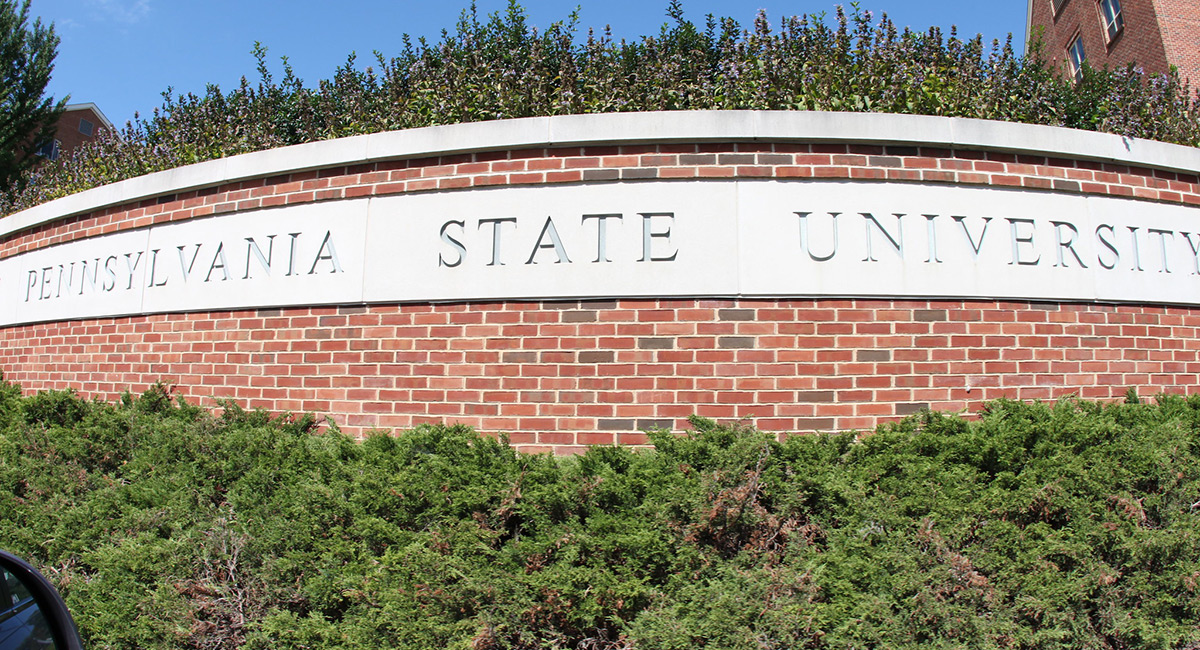Polling data show declining public support for our universities. One reason is that the perception has been blemished that colleges are run by unselfish educators seeking to prepare our future generation of leaders for an educated and virtuous life. Nowhere is that more apparent than in Pennsylvania. Recently one extremely prominent former university president served time in jail, and a second long-time business school dean looks like he may be soon behind bars.
Graham Spanier not only was the long-time (over 16 years) president of Pennsylvania’s flagship public university, Penn State, but also was truly a titan in the broader American higher education community, for example, serving as the chair of the most prestigious and elitist grouping of schools in America, the Association of American Universities—America’s top research institutions.
This summer Spanier served time in the Centre County (Pennsylvania) Correctional Facility, having been found guilty of a child endangerment charge relating to the coverup of the Jerry Sandusky sex scandal involving minors. Other Penn State officials also served prison time for their attempting to cover up the scandal.
Meanwhile, a few hours’ drive away in Philadelphia, the very longtime (22 years) Dean of the Fox School of Business and Management at Temple University, Moshe Porat, after a lengthy trial was convicted on Monday on charges of conspiracy and wire fraud. Dean Porat’s crime? He promoted a scheme to lie about characteristics of students in Temple’s on-line MBA program in order to obtain higher rankings in the US News & World Report rankings of business schools. With artificially inflated rankings, Temple increased enrollments and tuition revenues.
As a friend of mine who is a Philadelphia area newspaper editor confirms, the modern- day City of Brotherly Love will not win awards for the high ethical standards of many of its leading public servants. Violence is soaring, with over 500 homicides in 2021, including a Temple undergraduate student (and Eagle Scout), Samuel Collington, killed Sunday near the college campus. Yet colleges and universities are supposed to be, among other things, peaceful places populated by individuals with high integrity, dedicated to training a future generation of not only technically proficient but also virtuous leaders.
Collegiate sin is by no means limited to Pennsylvania. The Varsity Blues admission scandal, for example, was national in scope but concentrated largely on the West Coast at the University of Southern California and other schools. As enrollments trend downward (as they have for a decade), prospective students may be foregoing college not only because it is expensive, or because many graduates end up with big debts and only so-so jobs, but because of a perception that the typical college campus is not an oasis promoting wisdom, virtue, vocational competence and competent leadership—historically considered a great collegiate strength.
The question I ask myself often these days about colleges: is the decline in American civilization evidenced by rising indebtedness, more out-of-wedlock births, falling church attendance, early signs of overseas emigration of Americans, rising crime rates, international retreat (Afghanistan) etc., partially at least a cause, or more a consequence of actions of American universities? Or, more likely, both?
You could build a decent case that the decline in academic standards in American universities over the past generation or two (clearly evidenced by rampant grade inflation) is a cause, with a lag, of a decline in work effort and performance within the broader American society. If people are not pushed much in college, why will they push hard to achieve later in life? Has there been a general relaxation of work ethics that is partly collegiately determined?
But it goes the other way too. To return to the original theme of this epistle, in a nation where religiosity is high and respect for the Ten Commandments is paramount, would we have as many moral transgressions on campus as seen, for example, at Penn State and at Temple?
More broadly, in our worries about short term problems arising from enrollment decline and pandemic related issues, are we losing sight of the bigger picture? Are universities part of the problem or the solution, and, if the former, how should they mend their ways and reform to positively impact a future America?












